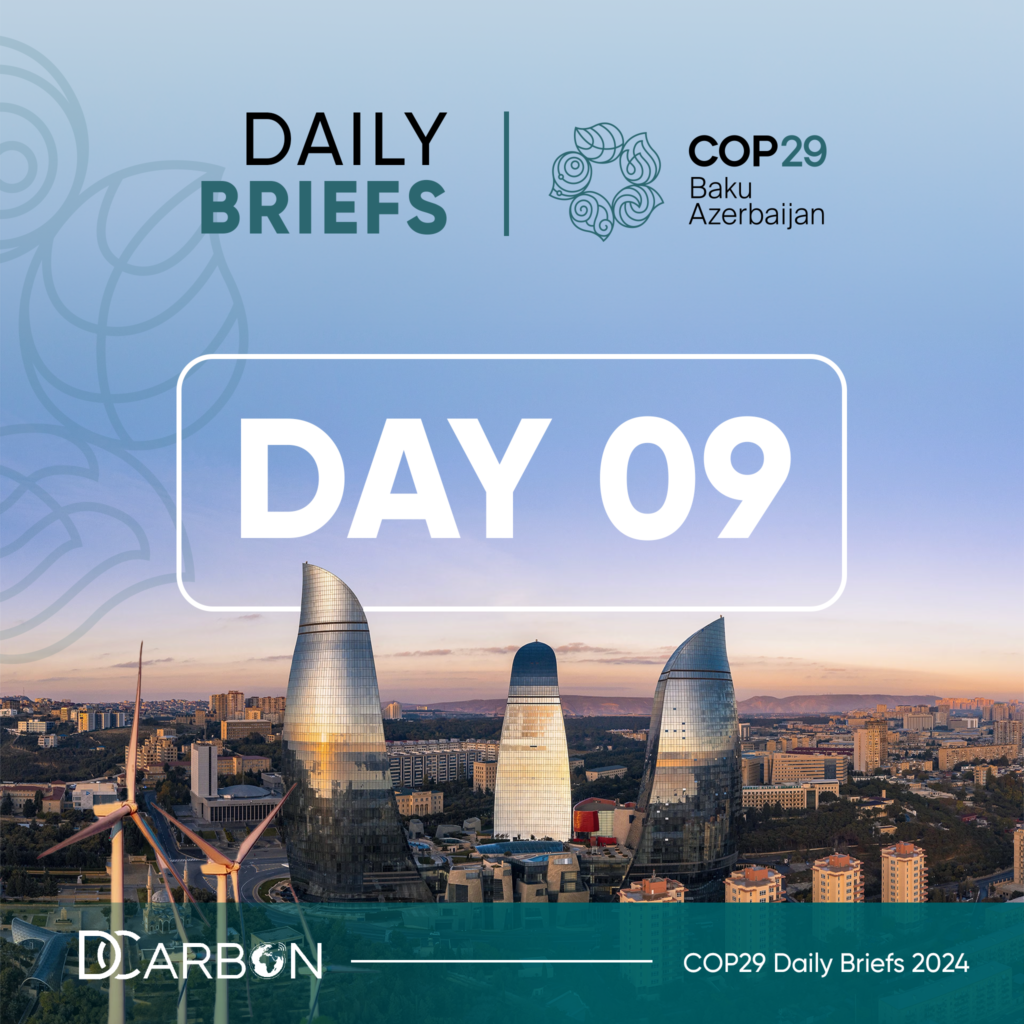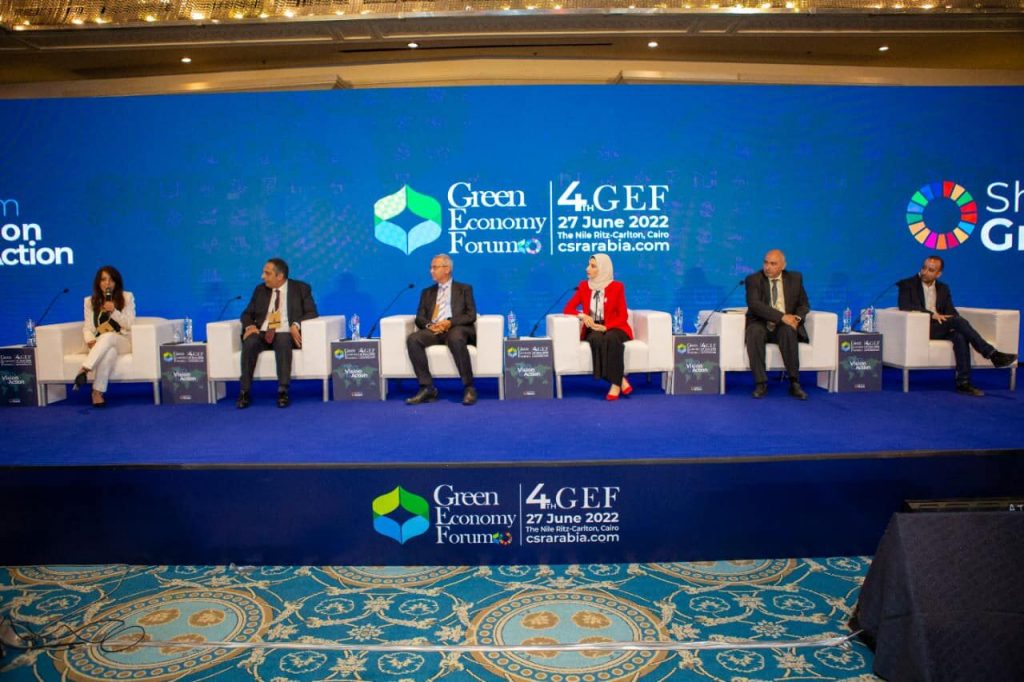Blue Zone
Investments in the circular economy drive social, economic, and environmental progress
Multilateral Development Banks (MDBs) unveiled their inaugural joint report on the circular economy, titled “The Circular Economy in Motion.” At the United Nations Climate Change Conference (COP29) in Baku, Azerbaijan.
This comprehensive report highlights 20 detailed case studies from various sectors worldwide, including waste management, food systems, construction, plastics, textiles, battery recycling, and critical raw material recovery. These examples showcase the MDBs’ broad support for the circular economy through advisory services, financial aid to governments, private-sector investments, and support for the financial sector.
Based on these case studies, the report outlines six key takeaways:
- Circular economic investments are globally expanding, including in middle- and low-income countries, despite uneven policy frameworks.
- MDBs collectively offer various tools from tailored loans and investments to advisory services, to foster circular economic development.
- The private sector is increasingly engaged in circular initiatives, yet stronger regulatory frameworks are essential to maximize opportunities.
- Cities serve as hubs for innovation and drivers of action in circular economy efforts.
- The financial sector plays a critical role in enhancing access to finance for circular businesses but requires clear guidance to capitalize on this potential.
- Circular economy interventions by MDBs must prioritize the inclusion and support of vulnerable populations and the informal sector.
At the World Circular Economy Forum in Brussels, the MDBs’ Working Group presented a shared vision, pledging to promote knowledge exchange among the private sector, civil society, and authorities at all levels earlier this year. Members of this Working Group include the Asian Development Bank (ADB), African Development Bank (AfDB), European Bank for Reconstruction and Development (EBRD), European Investment Bank (EIB), Inter-American Development Bank, IDB Invest, and the World Bank Group (World Bank and IFC).
“The effects of climate change, nature loss, and pollution are being felt first and foremost by developing countries. We can no longer maintain a livable planet with linear economies that grow now and clean up later. Moving toward more circular approaches can support jobs and competitiveness for countries – but this requires better regulations. The circular economy presents enormous opportunity for the private sector. Multilateral Development Banks can play a key role in supporting countries to create the right policy environment to attract private sector investments that seize the opportunities that a circular economy offers,” said Valerie Hickey, Global Director for Environment, World Bank.
EU Commissioner is adamant on completing last year’s climate deal
The EU remains steadfast in its commitment to transitioning away from fossil fuels as Azerbaijan prepares a proposal for a global climate finance agreement. Climate Commissioner Wopke Hoekstra did not specify how much the EU is willing to contribute to assist developing nations in achieving the same goal. While reaffirming the EU’s opposition to weakening global commitments on fossil fuel transition, Hoekstra avoided setting strict conditions or disclosing figures for the proposed “new collective quantified goal” (NCQG) aimed at supporting developing countries in adapting to climate challenges. The EU plans to lead by example but awaits the first formal draft of the COP29 climate finance deal.
Insights from Brazil’s 2035 Climate Commitment
Brazil unveiled an updated climate pledge to reduce greenhouse gas emissions by up to two-thirds by 2035 compared to 2005 levels a COP29 in Baku. This makes Brazil one of the first nations to submit its updated nationally determined contribution (NDC) ahead of the February 2025 deadline under the Paris Agreement. The pledge sets two targets for 2035: a less ambitious goal of 1.05 billion tonnes of CO2 equivalent (a 59% reduction) and a more ambitious goal of 0.85 billion tonnes (a 67% reduction). These build on Brazil’s previous targets of a 37% reduction by 2025 and 43% by 2030.
Brazil, one of the world’s largest economies and a top 10 emitter, plans to integrate the NDC into a comprehensive climate strategy by mid-2025. This includes national mitigation and adaptation plans divided into 16 adaptation and seven mitigation sectors. The country is the home to vital biomes like the Amazon, and will host COP30 in November 2025, where global NDCs will be reviewed. Vice President Geraldo Alckmin described the new goals as “ambitious but feasible.”
The UK and Guatemala explored common priorities during COP29 discussions.
At COP29, UK Special Representative for Climate Rachel Kyte met with Guatemala’s Vice Minister of Environment Edwin Castellanos and Climate Change Special Envoy Ambassador Rita Mishaan on November 20. Their discussions focused on climate financing and the urgent need for climate adaptation measures. Kyte stressed the UK’s commitment to mobilizing funds for protection and sustainable growth. Highlighting her role in fostering international collaboration on climate and clean energy, Kyte expressed the UK’s intention to continue working with Guatemala on environmental issues during and beyond COP29.
ASEAN Nations to Develop Unified Carbon Market Framework
ASEAN countries signed a Memorandum of Collaboration (MoC) to take the first step in creating a unified carbon market in the region at COP29. The MoC was signed by four countries (Thailand, Malaysia, Indonesia, Singapore) and the ASEAN Alliance on Carbon Market (AACM), aiming to establish common guidelines and standards. Thailand’s Bangchak Corporation has been a key driver of this initiative, laying the groundwork for regional carbon market collaboration since 2021 with the creation of the Carbon Markets Club. Chaiwat Kovavisarach, CEO of Bangchak and founder of the Club, highlighted its growth from 11 to 1,300 members in three years. He stressed the importance of fostering a transparent and efficient carbon market to support the ASEAN Common Carbon Framework and strengthen Southeast Asia’s global climate efforts.
More Than 30 Countries Commit to Tackling Methane Emissions from Waste
over 30 countries signed the Declaration on Reducing Methane from Organic Waste, marking a significant step in global efforts to combat methane emissions at COP29 in Baku, Azerbaijan. This includes eight of the ten largest methane emitters from organic waste. Methane, a potent greenhouse gas and “super pollutant,” contributes to respiratory diseases and is one of the most harmful gases driving global warming.
Methane emissions stem from various sources like oil and gas, coal mines, agriculture, and landfills, have been difficult to track due to the lack of detection tools. Formerly, emissions could only be detected through handheld devices or aerial surveys, but advances in satellite technology have made it easier to monitor. Despite challenges in accurately measuring emissions, especially from oil and gas companies, the focus is now on addressing these sources. The agreement is seen as a positive outcome given the scale of the methane emissions crisis, despite being focused on waste. Countries like the US, Germany, the UK, and the UAE endorsed the declaration, whereas the European Commission expected to consult member states before offering its full support.
Connecting Continents: Sustainable Transport and Logistics along the Silk Road – Europe and Latin America
Logistics and transportation play a vital role in driving global trade and influencing progress and quality of life across the world. However, with billions of tons of goods moved each year, this sector is a major contributor to global CO2 emissions. As the demand for logistics services grows, there is an urgent need for sustainable practices and innovative solutions. This panel brought together key political and economic leaders to discuss sustainable supply chain initiatives in important trade regions, including Central Asia, the South Caucasus, and Latin America. The focus was working towards a CO2-neutral society by identifying challenges within supply chains and collaboratively developing practical solutions. The organiser of this panel was Rhenus Group.
Urban Impact: How cities can accelerate the climate agenda
Learn about the policy changes that are bolstering and advancing the green economy from climate leaders in important markets and about the efforts being made to make sure that the transition is inclusive. The session explored how cities around the world are leading the fight against climate change. It highlighted outstanding city-led initiatives addressing major environmental challenges, such as reducing greenhouse gas emissions, enhancing green spaces, and promoting sustainable transportation solutions. The organiser of this panel was EY.
Sustainable Solutions in Logistics
The program sought to highlight and examine the innovative sustainable practices being adopted in logistics and aviation, with an emphasis on green energy and environmental stewardship. By showcasing these initiatives, it aimed to raise awareness of the crucial role sustainability plays in the future of global logistics and air transport. The program’s goal is to demonstrate Silk Way West Airlines’ dedication to sustainability through concrete actions, such as adopting green energy solutions, renewing its fleet, and advancing sustainable airport development. It also aimed to encourage ongoing discussions and collaboration around environmentally friendly practices within the industry.
Green Zone
Tourism and climate change
“Enhanced Climate Action in Tourism: Innovative Solutions and Way Forward,” is the title of one of the main panel discussions in the Green Zone. This panel tackled strategies for promoting sustainable tourism through minimizing environmental impacts, enhancing local economies and preserving cultural heritage.
The panel was moderated by Virginia Fernandez-Trapa, Programme Officer of the Sustainable Development of Tourism Department at the World Tourism Organization of the United Nations (UNWTO), and featured experts such:
- Gunay Bayramova, Head of Tourism Policy and Strategy at the State Tourism Agency (Azerbaijan)
- Heitor Kadri, Head of the International Relations Department at Brazil’s Ministry of Tourism
- Erika Harms, Global Director of Sustainability at Iberostar Group
- Shannon Gihan, Chief TreadRight & Sustainability Officer for The Travel Corporation
- Amy Lewis, Operations Senior Specialist at the Climate Change Division of the Inter-American Development Bank
The panelists shared best practices for reducing carbon emissions, protecting biodiversity, and ensuring both economic and ecological sustainability in the tourism sector. They embarked on innovative approaches such as: ecotourism, green infrastructure, and responsible travel as vital contributors to global tourism development.
In addition to this discussion, the Green Zone hosted events focusing on sustainable urban infrastructure, resilient and inclusive environments, and decarbonizing the construction sector. Experts from around the world participated in the sessions.
A significant milestone of the day was the adoption of the COP29 Declaration on Enhanced Climate Action in Tourism. This declaration aims to align the tourism sector with national and global climate goals, and was endorsed by over 50 countries, including Nationally Determined Contributions (NDCs). It acknowledges the dual role of tourism as both a contributor to and victim of climate change, stressing on the need for sustainable practices.
Ms. Andersen reiterated on the importance of reducing the tourism industry’s carbon footprint, noting that this is the first time tourism’s impact on climate change is formally addressed at a COP, in an interview with UNifeed. “We need to understand that the tourism sector is impacted by climate change and so, it is both a victim of and a contributor to climate change. That is why having this first tourism focus in a COP’s event is very important,” she said. This day marked a historic step in integrating sustainable tourism practices into global climate action.
Rising Emissions
A separate session highlighted a serious issue that could hinder climate action: global emissions increased by 1.3% in 2023, contrary to the necessary reduction to limit warming to 1.5°C, countries need to significantly reduce emissions by 2030 and 2035.
UNEP Executive Director Inger Andersen embarked that 52% of global emissions originate from just 25 megacities. She urged mayors to implement measures like improving energy efficiency, transitioning to clean energy, managing waste, promoting public transport, and creating pedestrian-friendly cities to significantly reduce emissions
Cities
Government officials, UN leaders, climate experts, and civil society representatives stressed the urgent need to reduce emissions, adapt to climate change, mitigate its impacts, and protect people from extreme weather events.
Cities, home to half the world’s population, contribute significantly to global emissions while overly being affected by climate change. UN-Habitat’s World Cities report warns that urban populations could face a 0.5°C temperature rise by 2040.
UN-Habitat Executive Director Anaclaudia Rossbach highlighted the threats of rapid and unplanned urban development to biodiversity, the environment, and food security. She stressed the need for adequate funding and cooperation to address these challenges and achieve sustainable urban development.
References:
https://www.carbonbrief.org/cop29-five-key-takeaways-from-brazils-2035-climate-pledge/
https://www.gov.uk/government/news/uk-and-guatemala-discussed-shared-priorities-at-cop29
https://unfccc.int/cop29/daily-programme
https://unfccc.int/cop29/DP-20-nov-2024#Global-Climate-Action-events
https://news.un.org/en/story/2024/11/1157206





